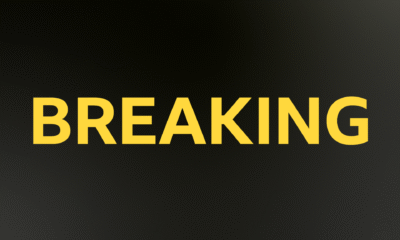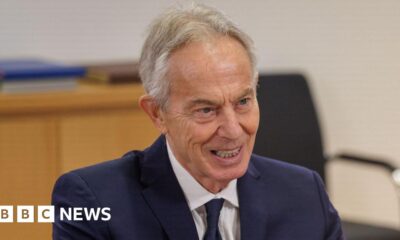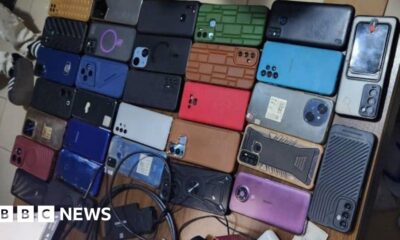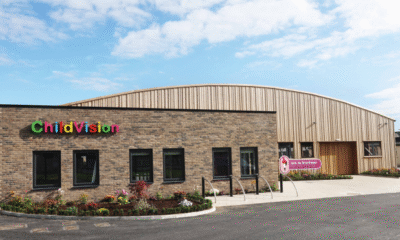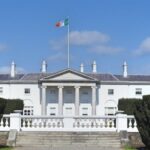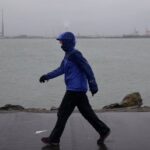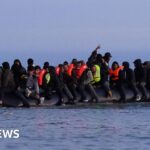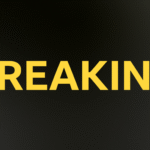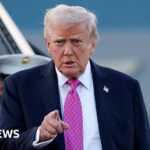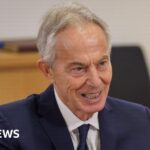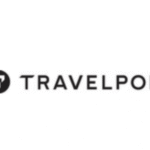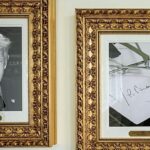Business
Trump announces new tariffs on drugs, trucks and kitchen cabinets
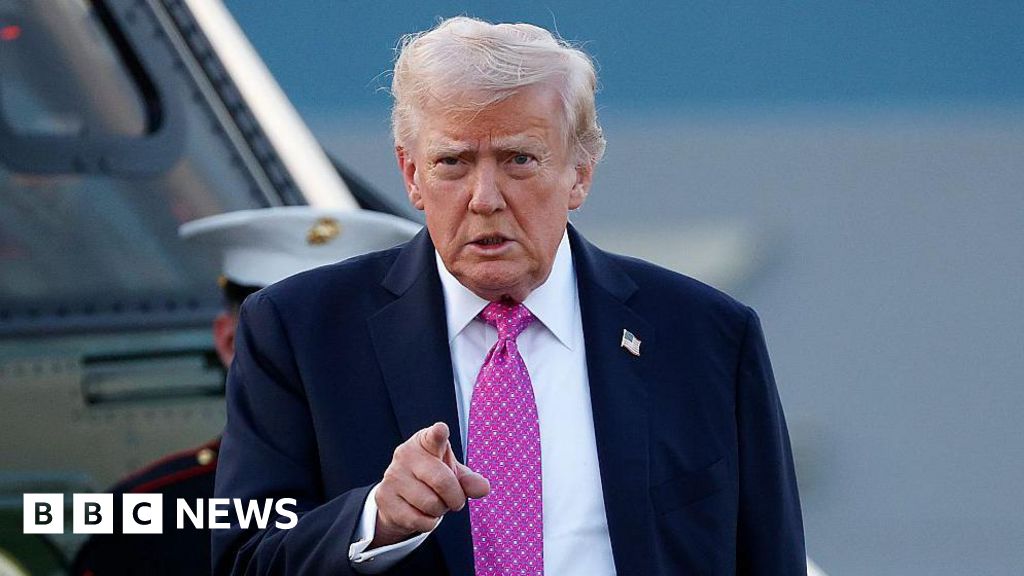
Read full article on post.
US President Donald Trump has announced a new wave of tariffs, including a 100% levy on branded or patented drug imports from 1 October unless a company is building a factory in the US.
Washington will also impose a 25% import tax on all heavy-duty trucks and 50% levies on kitchen and bathroom cabinets, the US president said as he unveiled the industry-focused measures.
“The reason for this is the large scale ‘FLOODING’ of these products into the United States by other outside Countries,” Trump wrote on his Truth Social platform on Thursday, citing the need to protect US manufacturers.
The announcements come despite calls from US businesses for the White House to not impose further tariffs.
The new tariffs could impact major producers of branded pharmaceuticals – including the UK, Ireland, Germany, Switzerland and Japan.
On Friday, Ireland’s Trade Minister, Simon Harris, said that a recent EU agreement with the US which meant any tariffs on pharmaceuticals would be capped at 15% remains the case after Trump’s announcement.
“I want to stress that the EU and US joint statement issued on 21 August made absolutely clear that any new tariffs announced by the US on pharmaceuticals would be capped at 15% for pharma products being exported by the EU,” he said.
The UK exported more than $6bn (£4.5bn) worth of pharmaceutical products to the US last year, according to the United Nations.
A UK government spokesperson said: “We know this will be concerning for industry, which is why we’ve been actively engaging with the US and will continue to do so over the coming days.”
Jane Sydenham, investment director at Rathbones, said speculation over tariffs for pharmaceuticals meant the sector had endured a “rollercoaster ride” over the past few months.
“The pharmaceutical sector in terms of share prices has been under pressure for quite some time both in the UK and the United States and Europe so nobody likes uncertainty and that’s been keeping a cloud over the sector for a while,” she told the BBC Radio 4’s Today programme.
However, Neil Shearing, chief economist at Capital Economics, said the tariff announcements were “not quite as big a move as it appears at first sight”.
This was due to the exemptions available to generic drugs and to those firms building factories in the US.
“Many of the world’s largest pharmaceutical companies either already have some production in the US or have announced plans to build production in the near future,” he said.
The tariffs on heavy trucks would protect US manufacturers from “unfair outside competition” and that the duties would help lift American companies such as Peterbilt and Mack Trucks, Trump said.
These firms “will be protected from the onslaught of outside interruptions”, he wrote.
The new levies on kitchen and bathroom cabinets, as well as some other furniture, were in response to high levels of imports, which hurt local manufacturers, the president said.
He added that the US would start charging a 30% tariff on upholstered furniture from next week.
The new duties came as Trump expands his tariff policies, which have been a key feature of his second term in the White House.
Trump’s sweeping tariffs on more than 90 countries came into effect in early August, as part of his policies aimed at boosting jobs and manufacturing in the US, among other political goals.
He previously imposed sector-specific tariffs on steel, copper, aluminium, cars and vehicle components.
Earlier this year, the US Chamber of Commerce urged the White House to not introduce new tariffs, arguing that many parts used in truck production are sourced “overwhelmingly” from countries like Mexico, Canada, Germany, Finland and Japan.
The organisation added that these countries are “allies or close partners of the United States posing no threat to US national security.”
Mexico and Canada are among the biggest suppliers of parts for medium and heavy-duty trucks, accounting for more than half of total US imports in the sector last year, said the chamber.
It warned that it was “impractical” to expect many of these parts to be sourced domestically, resulting in higher costs for the industry.
The new tariffs favour domestic producers but are “terrible” for consumers as prices are likely to rise, said trade expert Deborah Elms from research firm Hinrich Foundation.
The levies would cover more products at higher rates than Trump’s reciprocal tariffs, which were aimed at correcting trade imbalances with other countries.
These industry-specific import taxes could serve as a back-up plan to secure revenues as Trump’s sweeping duties on global trading partners are being challenged in court, said Ms Elms.
Business
Liverpool’s Leoni out for ‘about a year’ with ACL injury

Read full article on post.
-
5 minutes ago
Liverpool defender Giovanni Leoni is out for “about a year” after tearing his anterior cruciate ligament, manager Arne Slot says.
The 18-year-old sustained the injury on his debut against Southampton in the Carabao Cup third round on Tuesday.
Leoni joined the Reds in August from Parma for a fee of £26m plus add-ons.
“He is not in a good place because he tore his ACL which means he will be out around a year,” said Slot.
“Being so young and coming to a new country and playing so well in your first game, it’s very hard to take the positives.
“There is never a positive side but you try to look at that, and that is he is still so young and he has so many years still go to after he recovers from a terrible injury.”
More to follow.
Related topics
Business
Tony Blair in discussions to run transitional Gaza authority
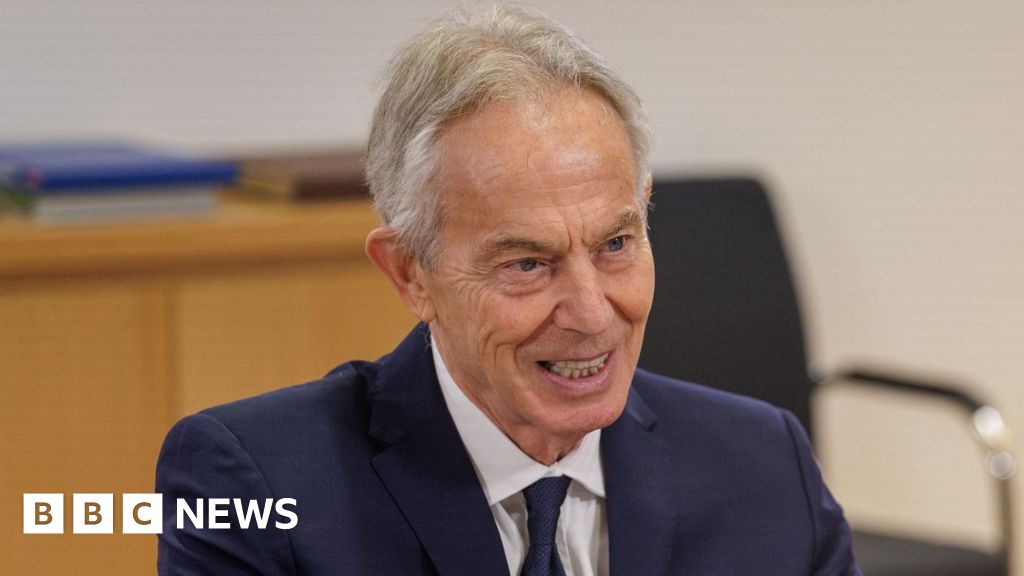
Read full article on post.
Former UK Prime Minister Sir Tony Blair has been involved in discussions about leading a post-war transitional authority in Gaza, the BBC understands.
The proposal, which is said to have backing from the White House, would see Blair lead a governing authority supported by the UN and Gulf nations – before handing control back to Palestinians.
His office said he would not support any proposal that displaced the people of Gaza.
Sir Tony, who took the UK into the Iraq War in 2003, has been part of high-level planning talks with the US and other parties about the future of Gaza.
In August, he joined a White House meeting with Trump to discuss plans for the territory, which US Middle East envoy Steve Witkoff described as “very comprehensive” – though little else was disclosed about the meeting.
After leaving office in 2007, Blair served as Middle East envoy for the Quartet of international powers (the US, EU, Russia and the UN). He focused on bringing economic development to Palestine and creating the conditions for a two state-solution.
As PM, he took the decision to commit British forces to the 2003 Iraq War that was heavily criticised in the official inquiry into the conflict, which found he had acted on flawed intelligence without certainty about the production of weapons of mass destruction there.
Reports of discussions about his involvement in a transitional authority for Gaza come after Palestinian President Mahmoud Abbas said on Thursday that he was ready to work with Trump and other world leaders to implement a two-state peace plan.
Abbas stressed his rejection of a future governing role for Hamas in Gaza and demanded it disarm.
Earlier this week, the UK formally recognised the state of Palestine alongside France, Canada, Australia, and several other countries. Israel and the US criticised the move as a “reward for Hamas”.
The Israeli military launched a campaign in Gaza in response to the Hamas-led attack on southern Israel on 7 October 2023, in which about 1,200 people were killed and 251 others were taken hostage.
At least 65,419 people have been killed in Israeli attacks in Gaza since then, according to the territory’s Hamas-run health ministry. A UN commission of inquiry has said Israel has committed genocide against Palestinians in Gaza, which Israel denies.
Business
Mass arrests for sextortion and romance scams in sting operation across Africa
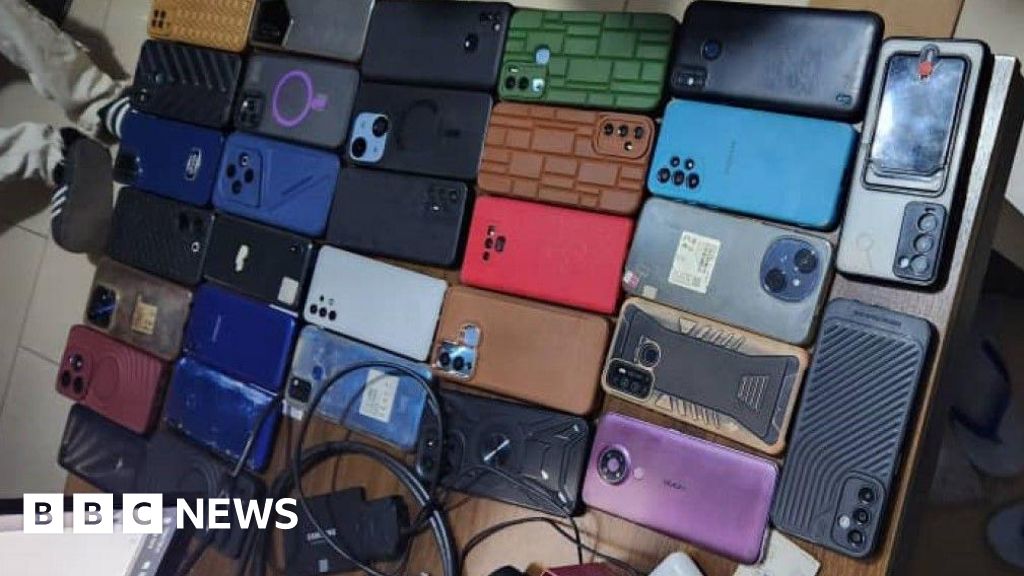
Read full article on post.
Some 260 suspected cyber scammers have been arrested in a sting operation carried out across 14 African countries.
The operation, coordinated by Interpol and funded by the UK, targeted criminal networks using social media and digital platforms to extract money from victims in romance scams, and in so-called “sextortion,” where victims are blackmailed using explicit imagery.
More than 1,400 victims across Ghana, Kenya, Angola and elsewhere were identified, with Interpol estimating their total losses at nearly $2.8m (£2.1m).
The global police network said it was committed to “disrupting and dismantling the groups that prey on vulnerable individuals online”.
During the crackdown which was carried out between July and August, police identified IP addresses, digital infrastructure, domains and social media profiles linked to members of the scam syndicates.
These leads and the subsequent arrests also resulted in the seizure of USB drives, Sim cards and forged documents, as well as the taking-down of 81 cybercrime groups across Africa, Interpol said.
“Cybercrime units across Africa are reporting a sharp rise in digital-enabled crimes such as sextortion and romance scams,” said Cyril Gout, the acting executive director of police services at Interpol.
He said the growth of online platforms had opened new opportunities for criminal networks to exploit victims “causing both financial loss and psychological harm”.
About 68 suspects were arrested in Ghana, where authorities seized 835 devices and identified 108 victims during the operation. Investigators there recovered $70,000 from the estimated $450,000 in financial losses.
Scammers in Ghana extracted payments using a range of schemes, including fake courier and customs shipment fees. They secretly recorded intimate videos during explicit chats and used them to blackmail people.
In Senegal, police arrested 22 suspects and uncovered a network that impersonated celebrities and used emotional manipulation on social media and dating platforms to defraud 120 victims of approximately $34,000.
A total of 65 devices, forged identification documents and money transfer records were seized during the operation in Senegal.
And in Ivory Coast, police arrested 24 suspects, seized 29 devices and identified 809 victims. Scammers used fake profiles online to blackmail victims, demanding payments to prevent public exposure.
Eight suspects were arrested in Angola where authorities identified 28 domestic and international victims, primarily targeted via social media. Scammers used fraudulent documents to create fake identities, facilitating financial transactions and concealing their real identities while engaging victims.
Other countries involved in the operation under the African Joint Operation against Cybercrime project include Benin, Burkina Faso, The Gambia, Guinea, Kenya, Nigeria, Rwanda, South Africa, Uganda and Zambia.
-
Politics3 days ago
European Parliament snubs Orbán with vote to shield Italian MEP from Hungarian arrest
-
Health4 days ago
EU renews support for WHO’s Universal Health Coverage Partnership
-
Culture3 weeks ago
Life, loss, fame & family – the IFI Documentary Festival in focus
-
Environment6 days ago
Key oceans treaty crosses threshold to come into force
-
Culture3 days ago
Twilight at 20: the many afterlives of Stephenie Meyer’s vampires
-
Culture1 week ago
Farewell, Sundance – how Robert Redford changed cinema forever
-
Culture2 months ago
Fatal, flashy and indecent – the movies of Adrian Lyne revisited
-
Culture3 weeks ago
What is KPop Demon Hunters, and why is everyone talking about it?


